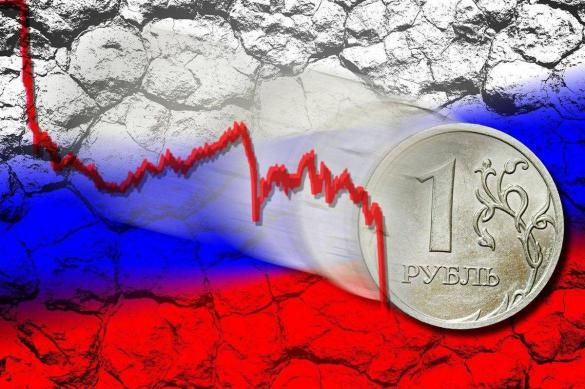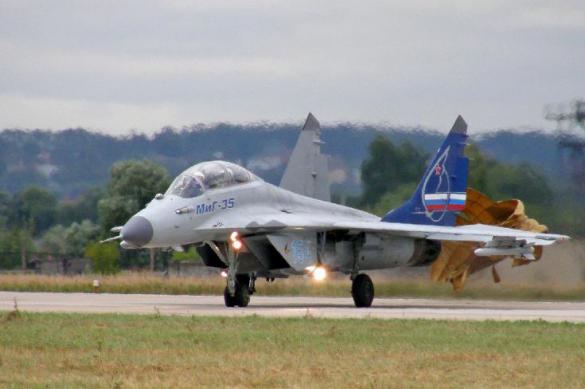'Trump's One Saving Grace is That He Makes People Laugh': Kuznick
"People look at the U.S. as a failed state led by a clown, and either laugh at American citizens or pity them," regrets the American Historian Peter Kuznick, in another exclusive conversation with Pravda.ru, as the new coronavirus is spreading more and more in the United States, leaving a death toll not seen even in times of US wars.
"At least the notion of 'American exceptionalism' has finally been put to rest," points out the director of the Institute for Nuclear Studies at American University, in Washington D.C., as he scares the fact that his country leads the number of infections and deaths due to COVID-19, the worldwide epicenter of the pandemic since March 26. "That's not the kind of exceptionalism anyone wanted or imagined possible."
Up to May 21, the number of those infected in the US were 1,601,393, and now over 100,000 deaths since the first case of infection was found in the North American country, last 20 January.
Meanwhile, President Donald Trump pressures for lifting the lockdown instead of focusing on increasing tests, which are dramatically insufficient, and providing more medical supplies like respirators and ventilators which are scarce at the center of global capitalism, as well as even face masks and tests.
According to Doctor Kuznick, the scarcity is due to the fact that capitalists profit exactly from it, not having surplus products or capacities. "They don't plan for crises or disasters when, if necessary, they have extra stocks and supplies." Nothing could best illustrate the capitalist system, like recent Ricardo Barros's words, former Brazil's Minister of Health: "Hospitals are almost breaking [in Brazil]. They have lost their normal movement, from elective surgery, traffic accidents fell a lot, which was a reason for hospital billing. We're breaking our entire hospital system financially because they can't do their normal work, and also have no COVID clients to occupy the beds."
Such words underline Doctor Kuznick's observations: "The health industry profits from human illness. The shortage of ventilators, masks, and tests around the world is an immediate example." He also points out that food and health are fundamental rights: "Global security starts with food and health," adds the expert. "One of the factors contributing to the skyrocketing death rate in the U.S. is the poor nutrition habits and lack of healthy, affordable food in many communities and resulting obesity epidemic throughout the country."
In four months since the first coronavirus infection first infected a citizen in America, there are now more than 30 million unemployed in the country. And it is expected that, in the near future, 43 million citizens will be without health insurance, linked to employment in the North American country. "Most people's health insurance is irrationally tied to their jobs", says the historian.
In a system that favors and encourages profit maximization, transforming everything into the business including basic rights such as education and health, hospital chaos has been a huge problem in the United States since mid-March as well as in practically the entire world, due to the number of patients hospitalized by COVID-19.
"Charlotte Perkins Gilman described capitalism as a system that throws food away, while children are hungry," recalls the universitarian professor, who grants interviews to news media all over the world, day by day. "The super-rich and powerful are using the crisis to grab an even bigger share of the world's wealth" warns the world-renowned analyst, author of several books and co-author with filmmaker Oliver Stone of The Untold History of the United States, in this interview from his home in Bethesda (Maryland) to the Brazilian Journalist Edu Montesanti.
To combat the coronavirus, Trump has so far approved four economic aid packages, "disappointing and even scandalous" for the professor at the American University, who resonates with the vast majority of progressive sectors in the United States. "Once again, a disproportionate share was earmarked for large corporations and the rich", evaluates the researcher, who considers that humanity faces a deeply critical moment, "among the threats of nuclear war, climate change, pandemics, and generalized impoverishment".
"What kind of monster do we create? The dominant elites, supported by their public and private armies, have waged war against the earth's poor for centuries", observes Doctor Kuznick in the following conversation, who still comments on the global chaos of the food chain, and the frightening increase of hunger in the face of the pandemic. "Some form of democratic socialism must emerge from this catastrophe," he adds.
In the following lines, the full text of another exclusive Pravda.ru conversation with Professor Doctor Peter Kuznick, one of the world's most important contemporary analysts.
Edu Montesanti: World-renowned Historian, Professor Doctor Peter Kuznick, thank you so very much for once again joining our discussions, especially in the current too hard time to mankind.
Since we talked for the last time in late-March about the pandemic when the United States had just become the worldwide epicenter of the novel coronavirus, the virus has been spreading throughout in the U.S. even more dramatically. And there are now more than 26 million unemployed in the country.
When you granted Pravda.ru that interview two months ago, you strongly criticized President Trump's response to the pandemic. Among other observations, you said: "His performance has been disgraceful".
How do you evaluate Donald Trump's performance since then, and why the virus just grows vertiginously in America?
Professor Doctor Peter Kuznick: We have a problem in the United States describing Donald Trump's performance in the current crisis. We have simply run out of negative adjectives. What was "disgraceful" in March is now a combination of catastrophic, moronic, cringeworthy, appalling, and lethal.
Perhaps the word "Trumpian" will enter the American lexicon and it will be defined as the most craven, tone-deaf, self-congratulatory, unempathetic, ignorant, dishonest, and totally incompetent behavior imaginable.
The problem is not simply that Trump wasted two months fiddling while Rome burned when he could have been taking steps to limit the impact of the pandemic, the problem is that he hasn't learned from his mistakes and corrected his initial missteps and inactions.
He has not, to the surprise of many who expected the autocratic president to seize as much power as possible in the face of the crisis, exercised the emergency powers he does have to command the economy and order production of the tests, equipment, and PPE the country desperately needs.
Perhaps he is more afraid of showing that the government can actually help solve problems than he is of the possibility that tens of thousands will needlessly die as the result of his inaction. The U.S. is still only doing a fraction of the testing that all experts agree is necessary to control the virus and get people back to work and school even though Trump declared more than two months ago that everybody who needs a test can get a test. So his lies about testing and his gloating about the great job his administration is doing become more desperate and hyperbolic by the day.
On top of that, he dispenses the most dangerous advice--take hydroxychloroquine to expedite healing--and offers the most chillingly absurd nostrums like drinking bleach to kill the virus. No wonder all the polls, including his own party's internal ones, show him trailing Joe "Let Me Out of Witness Protection" Biden by a substantial margin. The Republicans are worried that they'll lose the Senate too thanks to Trump's heartlessness and incompetence.
I'm reminded of the fate of the president who oversaw the start of the last U.S. depression--Herbert Hoover. Unlike Trump, Hoover had at least been a highly competent and intelligent international mining engineer and wartime relief provider--the word "Hooverize" entered the lexicon after his massive WWI-era relief efforts meaning to economize for a noble purpose--who attempted unsuccessfully to steady the economy. But Hoover was viewed as being cold and aloof in the face of suffering and desperation.
And he was thrashed at the polls by Franklin Delano Roosevelt. Trump, on the other hand, is the least competent and intelligent man to occupy the Oval Office in more than a century and he compounds that by being totally callous in the face of human misery.
His one saving grace is that he makes people laugh. He has become the object of scorn and derision around the world. People look at the U.S. as a failed state led by a clown and either laugh at American citizens or pity them. At least the notion of "American exceptionalism" has finally been put to rest.
The United States has sadly proven itself the world leader in one area--the number of cases of COVID-19 and the number of resulting deaths. That's not the kind of exceptionalism anyone wanted or imagined possible.
President Trump has signed up to now four coronavirus relief bills, totalizing an unprecedented US$ 3 trillion as a response to a crisis. However, there have been strong criticisms about those bills.
Especially Congresswoman Alexandria Ocasio-Cortez (AOC) deeply criticized the US$484 billion relief bill, passed on April 23. She voted against it, suggesting that the Republican Party lawmakers are not doing anything other than serving the wealthy and corporate interests of large companies, while, she has said, they continue to fight against substantial economic proposals that would meet to the needs of working-class families, low-income people, small businesses, and all those who are paying the highest price to the pandemic.
Various progressive groups sent a letter to Democratic lawmakers, urging them to vote against Republicans' bills, as it fails, according to them, to put the needs of people, families, and Main Street businesses ahead of corporate interests.
What are your thoughts on those bills, Doctor Kuznick?
From a progressive standpoint, the bills that have thus far passed are disappointing, even scandalous. The Republicans have learned something from Obama's bailout of the banks in 2009. They at least make it appear as if they're spreading the bailout money to help the unemployed and small businesses. But, once again, a disproportionate share has gone to the corporations and the wealthy.
The Republicans, led by Trump, have fought against transparency and accountability. The corporate or centrist Democrats have been willing to go along. The progressive Democrats have offered more resistance. The response has been totally inadequate thus far and has done little to ease the suffering of working people. Unemployment has skyrocketed to 1930s levels, which is particularly devastating in the U.S. where most people's health insurance is irrationally tied to their jobs.
There is a battle brewing over the next round of bailouts and how much to provide to the state and local governments that have borne the brunt of the expenses in combating the pandemic but can't simply print money or run huge deficits the way the federal government can.
Now the Republicans, who gave a trillion-dollar tax break to the wealthiest Americans, are suddenly worried about deficits and are using that as an excuse for inaction. But further relief measures are inevitable. The question is who gets bailed out.
How neoliberalism and the capitalist system as a whole, can be blamed for the chaotic situation across the world nowadays before the pandemic?
Many are blaming neoliberalism: do you see a structural problem of capitalism or a reformed one can solve the world's problems, and specifically related to the coronavirus?
The great American feminist thinker of the late 19th and early 20th centuries Charlotte Perkins Gilman described capitalism as a system that throws food away while children starve. She also condemned the vast inequality of wealth that characterized the period of the robber barons and plutocrats.
But even she couldn't envision a world in which the richest 8 people have more wealth than the poorest 3.8 billion as we have now, one in which the richest one percent have twice the wealth of the bottom 90 percent. The problem has grown to unimaginable proportions and this has been by design.
It is the result of four decades of the worst form of neoliberal predatory capitalism that began with Ronald Reagan and Margaret Thatcher and has largely persisted to today. It is based on the belief that nothing should drive corporate behavior except maximizing profit.
So the energy companies accrue vast fortunes by destroying the environment and the climate and are rewarded not punished. The defense contractors and military manufacturers profit off of war and killing. The health industry profits from human illness. Greed knows no bounds.
What kind of a monster have we created? The ruling elites, backed by their public and private armies, have waged war against the poor of the earth for centuries. Rebellions and resistance have been crushed. Corporations have encroached upon nature, plundering the natural wealth of our planet.
What the vile Brazilian Trump whisperer Bolsonaro is doing now to the Amazon is just the latest example. The destruction of natural habitats combined with the effects of global warming have brought people in closer contact with wild animals, further increasing the risk of diseases like COVID-19.
We have seen social services, including health care, gutted around the world in the name of free enterprise and debt collection. Hospitals, too, are run on a profit-maximizing basis. They are businesses driven by the same motives as any other businesses. In normal times, having the kind of excess capacity that is so obviously needed in a crisis cuts into the profit margin.
Now we are suffering the consequences. I don't see this system being reformed. We need to build on the base constructed by millions of workers over centuries and run this economy based on addressing societal needs and maximizing social good not on the basis of private greed and wealth accumulation.
Some form of democratic socialism must emerge from this catastrophe.
Experts all over the globe have been differing in predicting which new world will emerge from this chaos, caused by the pandemic. In five months since the coronavirus has hit China, the world is facing an economic crisis comparable, for many, to the 1929 Great Depression.
What do you expect to the world in the near future, Professor Doctor Kuznick?
Humanity is truly at a crossroads. Between the threats of nuclear war, climate change, pandemics, and widespread immiseration, the existential crisis has reached epic proportions.
When former vice president Henry Wallace was driven from Truman's Cabinet in September 1946, removing the last hope of preventing the Cold War and nuclear arms race, he gave a national radio address explaining the stakes for humanity at that crucial juncture.
He said, "Winning the peace is more important than high office...The success or failure of our foreign policy will mean the difference between life and death for our children and our grandchildren. It will mean the difference between life and death of our civilization. It may mean the difference between the existence and the extinction of man and of the world."
Wallace was right. We lost the peace to the warmongers and have been lucky to survive as long as we have. But our destructive behavior has wreaked havoc upon our small, increasingly fragile planet. Humanity faces a choice today similar to the one Wallace outlined 74 years ago.
That is why some of us have been circulating the COVID-19 Global Solidarity Manifesto. We're trying to rally people around the world to fight for the kind of peaceful, shared world that enables everyone to reach their creative potential--not one that plunders and exploits the masses to enrich the few. Which world we end up with is up to us.
The "leaders" have all revealed themselves to be not up to the task. They are each jockeying to use this to enhance their own stature and national prestige and power. What we need is leaders who speak for the planet or for the people of the earth to take matters into their own hands.
The future will either be utopian or dystopian. If we continue down the same path we were heading before this latest crisis, the future will be bleak. But if enough people wake up to the insanity that characterized pre-COVID-19 business as usual, there is still hope.
Super-rich and powerful
The super-rich and powerful are using the crisis to grab an even bigger share of the world's wealth. They are devising new means of repression to make this possible. We must not let them succeed. It is time for all nations to work together to ensure a different kind of future.
In 1942, in the midst of the Second World War, President Roosevelt laid out a postwar vision of four "policemen"--the U.S., the Soviet Union, Britain, and China--maintaining peace and security in the postwar world. We don't need policemen, but we do need collaborative leadership on a global scale.
What we have now is instead a dog-eat-dog competition with new cold wars emerging between the U.S. and China and the U.S. and Russia and a looming hot war between the U.S. and Japan. World leaders are applying a 20th-century concept of geopolitics and national security to a 21st-century world in which the threats are of a fundamentally different nature.
Trump is certainly the main instigator, but he has plenty of accomplices.
The UN predicts 2020 will end with 130 million more people starving, so we will have almost one billion people hungry in the world then. In what way the measures to contain the spread of the virus, have underlined the extreme vulnerability of the global food supply chain? Edu--please check these figures. I think they may be too high based on the UN figures I've seen.
The current pandemic has not only brought the vulnerability of the global food supply chain into the light of day, but it has also made clear the vulnerability of the entire global supply chain across the board, including food, manufacturing, pharmaceuticals, and health care.
Capitalists profit from scarcity and not having surplus products or capacities. They don't plan for crises or disasters when if is necessary to have stockpiled extra supplies and provisions. The shortage of ventilators, masks, and tests around the world is an immediate example. Global security begins with food and health.
Henry Wallace understood this better than anybody. He came from a great Iowa farm family. His father was Secretary of Agriculture in the 1920s. Henry was Franklin Roosevelt's Secretary of Agriculture during the New Deal. He restored American farm production. He also worked as a plant geneticist. It was his hybrid corn that would eventually feed the world. He understood the intimate connection between food and peace better than anyone.
Agricultural production disrupted
But now agricultural production is being disrupted as are the global supply chains that distribute the food. There is little protection for agricultural workers against the disease. Many are falling ill. Others have stopped working due to fear of contracting the disease or because of lockdown.
The main problem right now, however, seems to be food distribution and not food supply. The situation is especially dire in conflict zones, countries suffering from climate change, and countries already suffering from extreme poverty. But even in more prosperous places there are alarming signs as farmers slaughter their own pigs as meat processing plants close down or dump milk and other products because of sharply reduced demand from restaurants.
What we really need to be doing is learning the lesson of the need for improved nutrition during this pandemic. One of the factors contributing to the skyrocketing death rate in the U.S. is the poor nutrition habits and lack of healthy, affordable food in many communities and the resulting obesity epidemic throughout the country.
So once again we have an opportunity to take advantage of this crisis to do some good. Trump declares "mission accomplished," but the struggle is really just beginning.
Photo: By Kevin Wong - Self-photographed, Public Domain, https://ift.tt/3gyfvvo
Let's block ads! (Why?)



















































